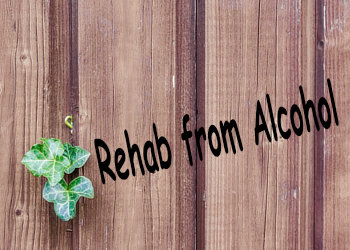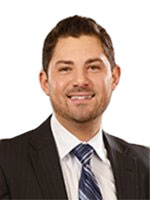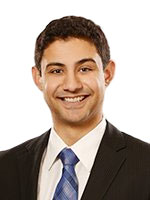Suing Alcohol Rehab for Negligence
Las Vegas, Nevada

If you or your family member got injured in an alcohol rehab in Las Vegas or Nevada, call us at 702-432-1000 to discuss your case.
We don't charge for consultations.
We represent clients in Las Vegas and Nevada.
What is an alcohol use disorder?
Alcohol use disorder (AUD) is a chronic condition characterized by an individual's problematic and compulsive consumption of alcohol, leading to significant distress and impairment. Individuals with AUD often find it challenging to cut down or control their drinking, and the condition can negatively impact various aspects of their lives, including relationships, work, and overall well-being.
What is alcohol rehab?
Alcohol rehabilitation center (or alcohol rehab in short) refers to a structured and comprehensive treatment process designed to help individuals overcome alcohol addiction or alcohol use disorder (AUD). The rehab for alcohol centers assists individuals in achieving and maintaining sobriety while addressing the physical, psychological, and social aspects of their alcohol dependence.
Types of alcohol rehab programs
Alcohol rehabilitation programs encompass a diverse range of approaches.
• Outpatient programs provide flexibility, allowing individuals to attend treatment sessions while maintaining daily commitments.
• Inpatient rehabilitation, involving 24/7 residence in a treatment facility, offers intensive care for those with severe addiction.
• Dual diagnosis programs focus on individuals with co-occurring mental health disorders, integrating specialized treatment for both conditions.
Are inpatient rehab programs effective?
It can be.
The inpatient rehab programs provide a highly structured and controlled environment, minimizing exposure to triggers and facilitating a focused approach to recovery. They offer intensive therapeutic interventions, including individual counseling, group therapy, and various evidence-based modalities.
In addition, the alcohol rehab provides medical monitoring, particularly during detoxification.
Many inpatient rehab centers incorporate holistic approaches, addressing not only the addiction but also the individual's overall well-being through activities like yoga, meditation, and fitness programs. Not to forget that living in a community of individuals facing similar challenges fosters a sense of mutual support.
Do patients get injured in alcohol rehab centers?
While alcohol rehab centers prioritize the safety and well-being of their clients, the potential for injuries does exist.
In some cases, individuals undergoing detoxification, particularly in an inpatient setting, may experience withdrawal symptoms that require careful medical monitoring to prevent complications.
Emotional and psychological challenges during therapy sessions can lead to heightened stress. While accidents or injuries may occur, alcohol rehab centers are generally equipped to handle emergencies and provide prompt medical attention when necessary.
What kind of injuries can happen in alcohol rehab centers?
The risk of injuries in alcohol rehabs is generally low. However, potential injuries may occur in specific situations:
Withdrawal-related complications: During the detoxification process, individuals may experience withdrawal symptoms, which, in rare cases, can lead to complications.
Accidents or falls: In inpatient and outpatient settings, the risk of accidental injuries, such as slips, trips, or falls, may exist. This can be associated with individuals' physical and emotional challenges during therapy or daily activities.
Physical activity risks: If rehab programs include physical activities or exercise components, there is a minimal risk of injuries associated with these activities, such as sprains or strains.
Medication-related issues: In rare cases, adverse reactions to medications used during treatment may occur.
Can you sue the alcohol rehab for negligence?
You can - if you have some evidence (video, photos, witness testimonies).
Negligence in rehab settings may take various forms, including:
• If a rehab center fails to provide adequate supervision, especially during critical phases like detoxification, it can harm individuals undergoing treatment.
• Negligence may occur if the alcohol rehab facility fails to appropriately address an individual's medical needs, leading to complications or worsened health conditions.
• If staff members are not adequately trained to handle emergencies, administer medications, or address mental health crises, it can contribute to negligent care.
• Negligence can be present if an alcohol rehab center does not implement proper security measures, leading to unauthorized access to harmful substances.
• Neglecting the maintenance and safety of the physical environment, such as addressing hazards that could lead to accidents, may constitute negligence.
• If someone in an alcohol rehab center attempts or dies by suicide, it might be possible to sue the rehab for negligence.
If you or a member of your family have experienced negligence during your stay in the alcohol rehab, call us at 702-432-1000 to discuss your situation. We don't charge for consultations.
What are the challenges of the lawsuits against alcohol rehab?
Some challenges include:
Waivers and consent forms: Many alcohol rehab centers require clients to sign waivers or consent forms before admission. These documents may limit the facility's liability and could present challenges in pursuing legal action.
Standard of care: Proving that the alcohol rehab center failed to meet an acceptable standard of care can be complex. Standards of care may vary, and establishing negligence requires a clear demonstration that the facility deviated from reasonable practices.
Causation: Establishing a direct link between the actions or omissions of the alcohol rehab center and the alleged harm can be challenging. If the harm is not clearly connected to the facility's actions, it may be difficult to establish causation.
Professional judgment: Courts often recognize that medical and therapeutic decisions involve professional judgment. Proving that a healthcare professional's decisions were not based on sound professional judgment can be intricate.
Contributory negligence: If the individual seeking legal action contributed to their injuries through non-compliance with the facility's rules or recommendations, this could limit the lawsuit's success.
Complexities of addiction treatment: Addiction treatment is inherently challenging, and relapse is a recognized aspect of recovery. Distinguishing between the expected challenges of addiction treatment and actionable negligence can be difficult.
Confidentiality concerns: The confidential nature of addiction treatment may limit the availability of certain information that could be crucial for legal claims. Balancing the need for information with patient confidentiality can be a delicate matter.
Regulatory compliance: Alcohol rehab centers are often subject to state regulations and licensing requirements. Violations of these regulations may be relevant to a legal claim, but navigating the regulatory landscape can be complex.
Insurance and financial resources: An alcohol rehab center's financial resources and insurance coverage may impact the ability to recover damages.
We can help
If you are considering legal action against alcohol rehab, call us at 702-432-1000.
Consultations are free.
Since 2010, our office has handled thousands of liability claims, helping victims to get their full and fair compensation.
We take all liability claims on a contingency basis, which means that if we cannot get your settlement money, we don't get paid, and you don't owe us anything.
We serve clients in Las Vegas and Nevada.

